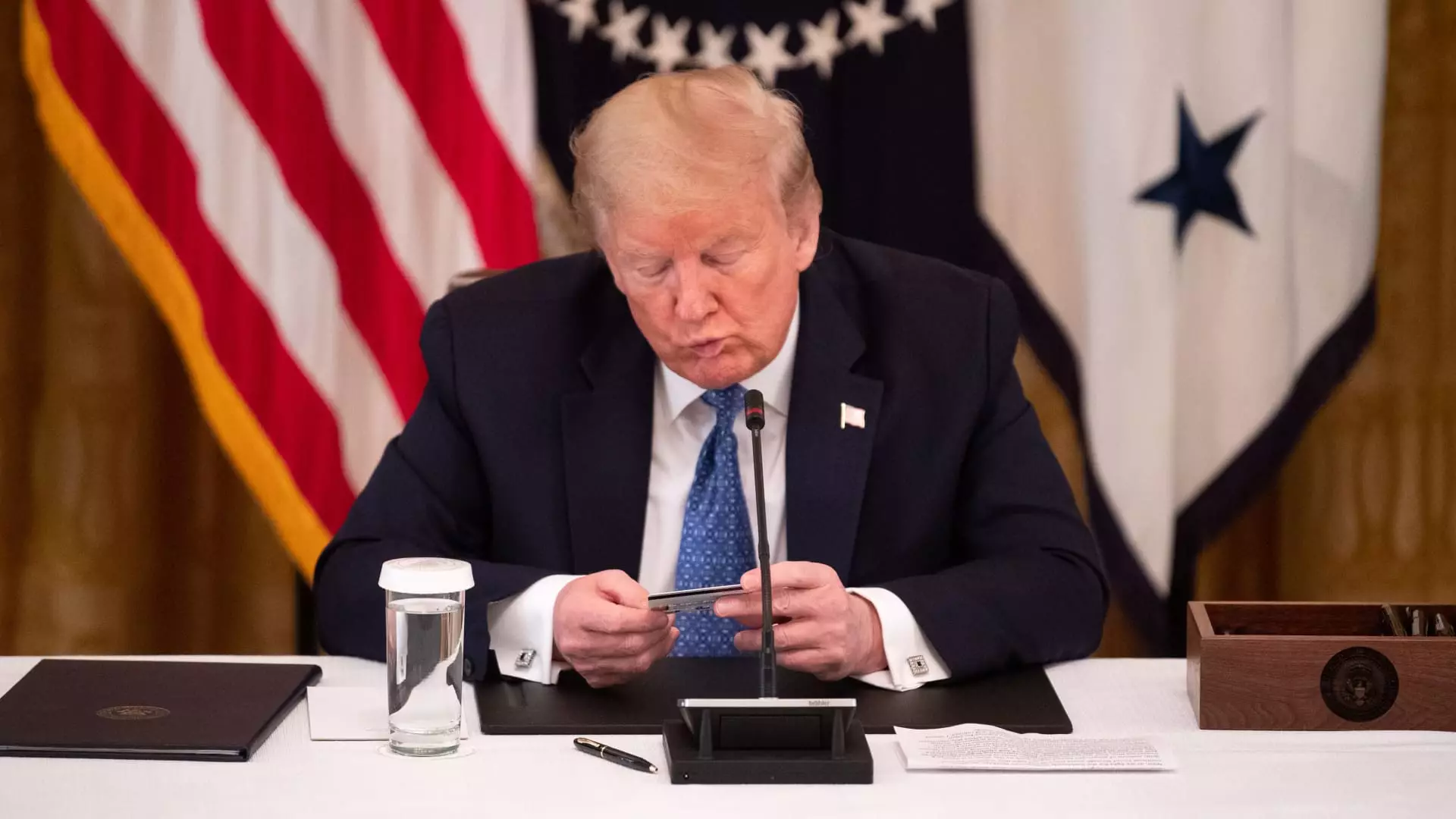In a landscape where cryptocurrencies are experiencing a roller coaster of ups and downs, a new project backed by Donald Trump is already encountering significant hurdles. World Liberty Financial (WLF), a venture that aims to revolutionize the concept of cryptocurrency banking, launched its token sale this week. However, the launch did not unfold as smoothly as expected, raising concerns about the viability and preparedness of the project.
The token sale kicked off with great anticipation, bolstered by claims from co-founder Zachary Folkman about a long whitelist of prospective investors, purportedly exceeding 100,000 individuals. Yet, as sales began, the enthusiasm quickly soured. Potential investors struggled to access the WLF website, which was plagued by frequent and prolonged outages throughout the morning and early afternoon on the launch day. This technical instability drastically curtailed the number of token sales, resulting in only around 4,300 unique wallet addresses managing to secure tokens by Tuesday afternoon. This figure represents a disheartening 4% of those who registered for purchasing opportunities.
According to blockchain data from Etherscan, this initial response was far from robust, with WLF selling over 532 million tokens priced at 15 cents each—barely scratching the surface of its ambitious goal of releasing 20 billion tokens to the public. As the website flashed maintenance messages frequently, the question arose: could WLF effectively address these technical issues before confidence in the project eroded completely?
The timing of WLF’s rocky launch couldn’t come at a more challenging moment for Donald Trump, who is currently rallying support for his presidential campaign with just three weeks remaining until the election. Trump and his family have been vocal advocates for WLF since its inception in August, branding it intriguingly as “The DeFiant Ones.” This title is more than a marketing gimmick, reflecting the project’s aim to navigate the burgeoning yet volatile decentralized finance (DeFi) sector.
While WLF’s roadmap indicates ambitious plans to raise $300 million at a lofty valuation of $1.5 billion during this initial sale, the details shared have remained sparse, leading to skepticism among potential investors. Though Folkman has laid out a broad vision for WLF, which includes features like lending, borrowing, and investing in digital assets, the lack of a formal white paper or transparent business plan raises red flags about the integrity and seriousness of the endeavor.
Regulatory Considerations and Investor Eligibility
As the venture unfolds, it crucially aligns itself with U.S. regulations by adopting a Regulation D token offering structure. This legal framework permits fundraising without registration, keeping the process limited primarily to accredited investors—individuals whose net worth exceeds $1 million. This creates a complicated landscape where access to investment opportunities is restricted, raising questions about the project’s inclusiveness.
Furthermore, Folkman has indicated that the founding team, including members of the Trump family, would hold 20% of WLF’s tokens. This raises a significant question about potential conflicts of interest as well as the equitable distribution of tokens—an issue that has historically plagued many investment projects, particularly in the crypto space.
While WLF aspires to carve a niche in the growing DeFi ecosystem, which includes collaborations with established platforms like Aave, its ability to recover from these launch setbacks remains uncertain. Investors are understandably wary; a project of this ambition requires a stable foundation rather than a shaky start marked by outages and opaque strategies.
Interestingly, it wasn’t only WLF that faced scrutiny on this challenging day for Trump-related ventures. Shares of Trump Media & Technology Group, the parent of Truth Social, experienced a dramatic decline of nearly 10%. Such volatility in related enterprises only serves to emphasize the tumultuous nature of Trump’s ventures, both in the political and financial arenas.
While the potential for WLF’s success exists within the expansive cryptocurrency universe, immediate obstacles loom large. Questions regarding its operational execution, communication transparency, and adequate regulatory adherence must be resolved to gain investor trust and ensure long-term viability. Whether WLF can turn the tide amid a cacophony of doubt remains to be seen.


Leave a Reply